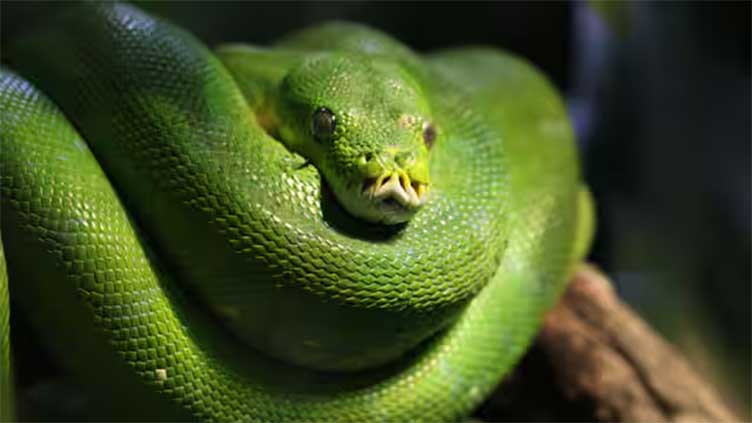Pythons may help in curing heart diseases, hints study

WeirdNews
Pythons may eventually prove helpful in curing heart diseases
(Web Desk) - In a bizarre study, scientists have observed that pythons may eventually prove helpful in curing heart diseases like cardiac fibrosis.
Scientists have observed that after devouring its prey, the heart of the python grows 25 per cent in the first 24 hours and eventually the cardiac tissue softens and the organ doubles its pulse.
In this process, many specialised genes come into action and boost the metabolism of the snake. Two weeks after the food has been digested, all the systems go back to normal and the heart remains slightly larger and stronger.
According to CU Boulder researchers, this process can lead to the creation of novel treatments for someone suffering from human heart conditions like cardiac fibrosis, in which heart tissue gets stiffened.
"Pythons can go months or even a year in the wild without eating and then consume something greater than their own body mass, yet nothing bad happens to them," said senior author Leslie Leinwand.
Leinwand is the chief scientific officer of the BioFrontiers Institute and professor of molecular, cellular and developmental biology at CU Boulder.
"We believe they possess mechanisms that protect their hearts from things that would be harmful to humans. This study goes a long way toward mapping out what those are," Leinwand said.
Leinwand began studying the pythons around two decades ago and her lab is among the few who are looking into non-venomous reptiles to find ways in which human health can be improved.
"Most people who use animal models to study disease and health typically focus on rats and mice, but there is a lot to learn from animals like pythons that have evolved ways to survive in extreme environments," Leinwand said.
In humans, there are two kinds of heart growth, said Leinwand. There are healthy hearts which have chronic endurance and unhealthy ones which have the disease.
Pythons, similar to elite athletes, are good at healthy heart growth.
In the study carried out, the pythons were fasted for 28 days and then given a meal of 25% of their body weight after which they were compared to the snakes who had not been fed.
It was observed that the hearts of the well-fed snakes grew and the specialised bundles of cardiac muscle known as myofibrils, which help the heart expand and contract, had turned radically soft and contracted with around 50 per cent greater force.


